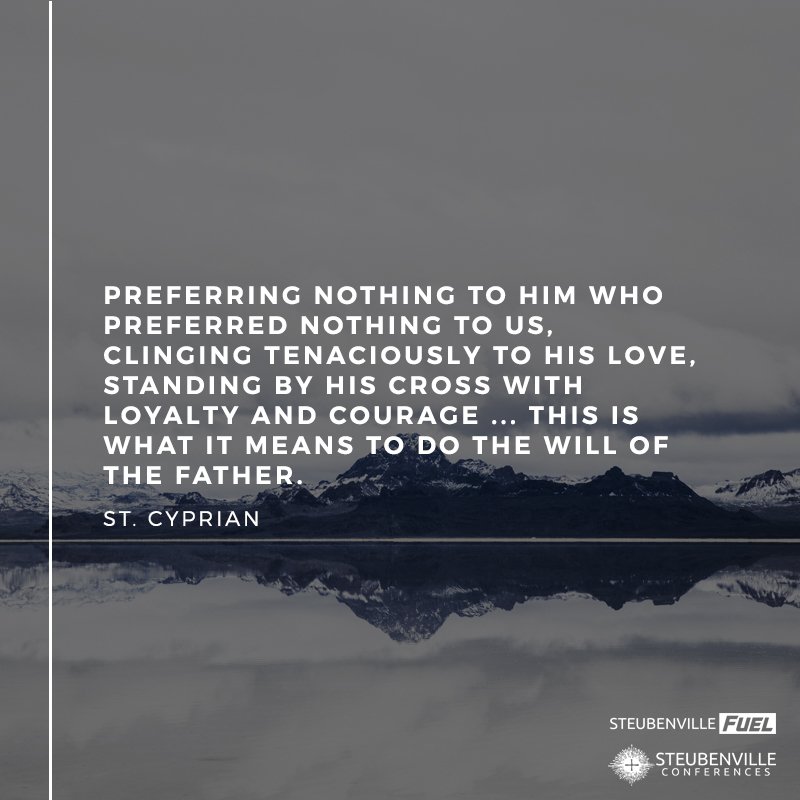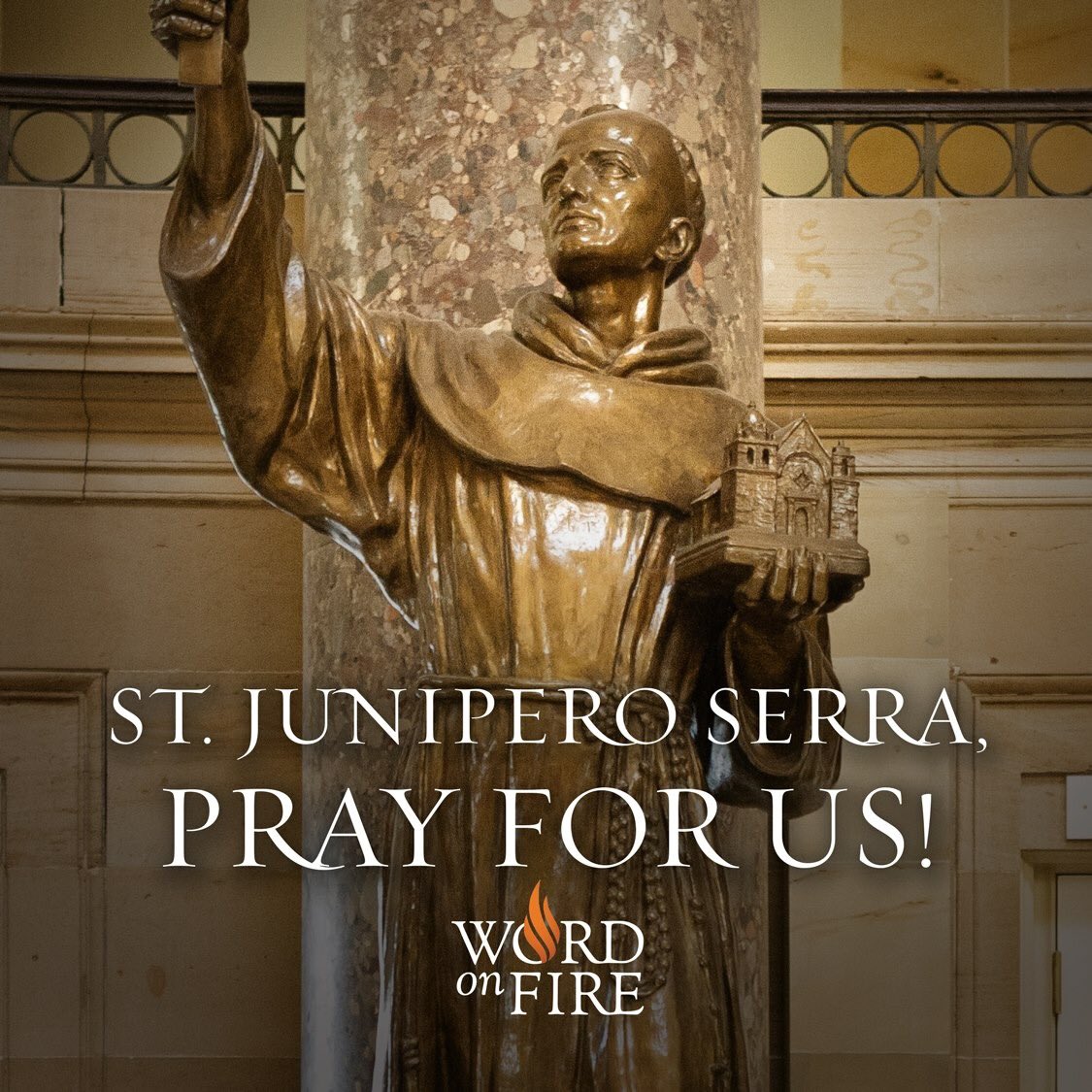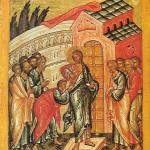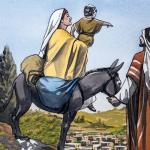1.
"The redemption of suffering is an event that transforms the drama of suffering into a drama of love." ~L. Albacete
http://t.co/lXwvxPh9Yy
— Adopt-a-Priest (@adopt_a_priest) October 19, 2014
2. From a homily (@FrSteveGrunow) for today:
our faith as Christians is not simply about having ideas or feelings about God or matriculating through faith based institutions, but is an encounter with a living, divine person who reveals himself to us in Jesus Christ. Our faith is in the divine person Jesus Christ and he offers to us a relationship with himself through his Church. With this relationship comes the promise that knowing him we can become like him, and becoming like him we become everything that God has created us to be!
The Second Vatican Council expressed this succinctly by insisting that Christ “fully reveals man to himself”, in other words, it is only in knowing the Lord Jesus that we can know God’s plan for our lives, the purpose for which he created us, and the meaning of our existence. Christ reveals who we really and truly are. Knowing who we are we know what our mission is. Without knowing Christ and entering into relationship with him humanity will drift into oblivion. Thus the urgency of deepening our relationship with the Lord Jesus and inviting other people to know him.
The Church has been created by Christ, not as a means by which its members receive faith-based services provided to them at requisite fees, but as the way the Lord Jesus will introduce himself to the world and invite people to share a relationship with him. That’s what the mission of the Church is all about.
4. Backstory on the annual Week of Prayer for Christian Unity (this week) and Father Paul Wattson, founder of the Franciscan Friars of the Atonement.
5. From another homily (@FrRogerLandry) today:
We’re conscious of the fact that Jesus, during the Last Supper, prayed ardently that all of us would be one just like He and the Father are one. We’re obviously not one. There are the major divisions between Catholics, Orthodox and Protestants, but even within those major divisions, there are so many others, including within parishes, even within the domestic Church of the family. For the unity for which Jesus prayed to come about, it’s going to require Catholics, Orthodox and Protestants to sacrifice for unity, to allow Jesus to transform them in his priesthood that is the means of reconciliation for the entire human race. During this Octave and beyond, we’re called to sacrifice ourselves in prayer with Jesus, to sacrifice ourselves in forgiveness with Jesus, to sacrifice ourselves in charity with Jesus. And Jesus wants to give us the new wineskins to do it. But we have to obey this will of the Author of Salvation to bring that about.
6.
“@cbcpnews: 10 Things To Do After the #PapalVisitPH pic.twitter.com/TviZU6J0Py”#PapaFilippine
— Antonio Spadaro SJ (@antoniospadaro) January 19, 2015
7. This talk looks like it will be good:
On Monday, January 26, Fr. Dominic Legge, O.P. will address the Columbus School of Law at the Catholic University of America as part of its “Faith in Action” series. The subject of his talk will be: “Martin Luther King, Jr. and the Question of ‘Illegal Laws’: Civil Law, Justice, and Morality.”
…
Fr. Dominic Legge, formerly a trial lawyer with the Constitutional Torts section of the Department of Justice’s Civil Division and now a theologian and member of the Dominican Order, will examine King’s argument and the questions it raises, in order to illustrate how they can lead us to a better grasp of what law is and how it is related to justice and morality.
8. From a student brother at the Dominican House of Studies:
[How] are we to speak to our brothers and sisters about God, we who have fallen in love with God and come to believe that “it is not the same thing to have known Jesus as not to have known him, not the same thing to walk with him as to walk blindly, not the same thing to hear his word as not to know it, and not the same thing to contemplate him, to worship him, to find our peace in him, as not to” (Evangelii Gaudium, 266), if the very words we use to communicate our experience no longer make sense to those around us?
The first step is interior: allowing ourselves to be more fully converted each day, to be set free from the temptation to settle for a superficial knowledge of the comfortable catch-phrases we learned in catechism class, to be drawn more deeply into who God is. The words that define the Christian life—the Gospels, the Creed, the Hail Mary, the Our Father, and all the rest—are perpetual sources of rejuvenation, places where our own lives with Christ can be renewed and made more real. For these words to speak most effectively to others, we have to be willing to let ourselves be changed by them. We ourselves need to be transformed by the awe-inspiring experience of “how good it is to stand before a crucifix, or on our knees before the Blessed Sacrament, and simply to be in his presence!” (EG 264).
When we allow Christ to be our teacher in this way, we allow him to give us a new language to speak with. We begin to share in “how accessible he is” (EG 269), and are made more able to reveal Christ’s transforming love to people who don’t speak God’s language. Jesus’ Precious Blood is totally adipsous; but until we let him quench our thirst, we will not have much luck inviting others to drink from that life-giving stream.
Ultimately, this is the secret to evangelization: knowing that we are not going to save our friends by our own power or through our own eloquence. Salvation is from Jesus Christ, and him alone. That means we don’t have to be afraid of our own weaknesses, of the frailty of our language. Jesus Christ draws men and women to himself because he is true, good, and beautiful. If we give ourselves to him, and allow him to speak through us, trusting in his mercy, our contemporaries may discover that the Body and Blood of Christ are rather welcome nutrition after all.
Written by Br. Gabriel Torretta, a typical Dominican underachiever — he is described as having studied pre-modern Japanese literature at Columbia University.
He also uses a total Bill Buckley word in the title: Adipsous.
9. A tweet from this weekend’s New York Encounter, very close to what Pope Francis was near simultaneously saying in Manila:
"I can't give you an answer to why your father left you, but I can suffer with you." #nyencounter
— Rev. Daniel Barnett (@FrDanielBarnett) January 18, 2015
CNS top stories: Tears often are only correct response to suffering, pope tells youths: http://t.co/ssMXj1yU2q #CNSstory
— Catholic News Svc (@CatholicNewsSvc) January 18, 2015
(More from the pope in Manila here.)
10. “Here am I, Lord; send me.”
















